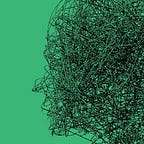AI will spell the end of capitalism
The most momentous challenge facing socio-economic systems today is the arrival of artificial intelligence. If AI remains under the control of market forces, it will inexorably result in a super-rich oligopoly of data billionaires who reap the wealth created by robots that displace human labor, leaving massive unemployment in their wake. But China’s socialist market economy could provide a solution to this. If AI rationally allocates resources through big data analysis, and if robust feedback loops can supplant the imperfections of “the invisible hand” while fairly sharing the vast wealth it creates, a planned economy that actually works could at last be achievable.
AI Researchers Are Boycotting Nature’s New Machine Intelligence Journal
Researchers from Google, Facebook, IBM, MIT and Harvard have pledged not to contribute to a new journal about machine learning, citing its lack of open access.
Artificial Intelligence Is Cracking Open the Vatican’s Secret Archives
A new project untangles the handwritten texts in one of the world’s largest historical collections.
AI Assistants Ranked: Google’s Smartest, Alexa’s Catching Up, Cortana Surprises, Siri Falls Behind
Google Assistant is the smartest AI assistant. Microsoft’s Cortana is surprisingly good, coming in second. Alexa is learning faster than any other assistant.
Chinese AI Chip Maker Cambricon Unveils New Cloud-Based Smart Chip
Chinese artificial intelligence chip maker Cambricon Technologies Corp Ltd has unveiled two new products, a cloud-based smart chip Cambricon MLU100 and a new version of its AI processor IP product Cambricon 1M, at a launching event in Shanghai on May 3rd.
Data Science for Startups: Introduction
The goal of this series of blog posts is to provide an overview of how to build a data science platform from scratch for a startup, providing real examples using Google Cloud Platform (GCP) that readers can try out themselves.
Stochastic Weight Averaging — a New Way to Get State of the Art Results in Deep Learning
In this article, I will discuss two interesting recent papers that provide an easy way to improve performance of any given neural network by using a smart way to ensemble.
An Introduction to Deep Learning for Tabular Data
There is a powerful technique that is winning Kaggle competitions and is widely used at Google (according to Jeff Dean), Pinterest, and Instacart, yet that many people don’t even realize is possible: the use of deep learning for tabular data, and in particular, the creation of embeddings for categorical variables.
Command Line Tricks For Data Scientists
Aspiring to master the command line should be on every developer’s list, especially data scientists. Learning the ins and outs of your terminal will undeniably make you more productive.
AI Revives In-Memory Processors
The processors promise to extend chip performance at a time when CMOS scaling has slowed and deep-learning algorithms demanding dense multiply-accumulate arrays are gaining traction. The chips, still more than a year from commercial use, also could be vehicles for an emerging class of non-volatile memories.
EINSUM IS ALL YOU NEED — EINSTEIN SUMMATION IN DEEP LEARNING
When talking to colleagues I realized that not everyone knows about einsum, my favorite function for developing deep learning models. This post is trying to change that once and for all.
A List of Chip/IP for Deep Learning(updated)
Machine Learning, especially Deep Learning technology is driving the evolution of artificial intelligence (AI). In the beginning, deep learning has primarily been a software play. Start from the year 2016, the need for more efficient hardware acceleration of AI/ML/DL was recognized in academia and industry. This year, we saw more and more players, including world’s top semiconductor companies as well as a number of startups, even tech giants Google, have jumped into the race.
